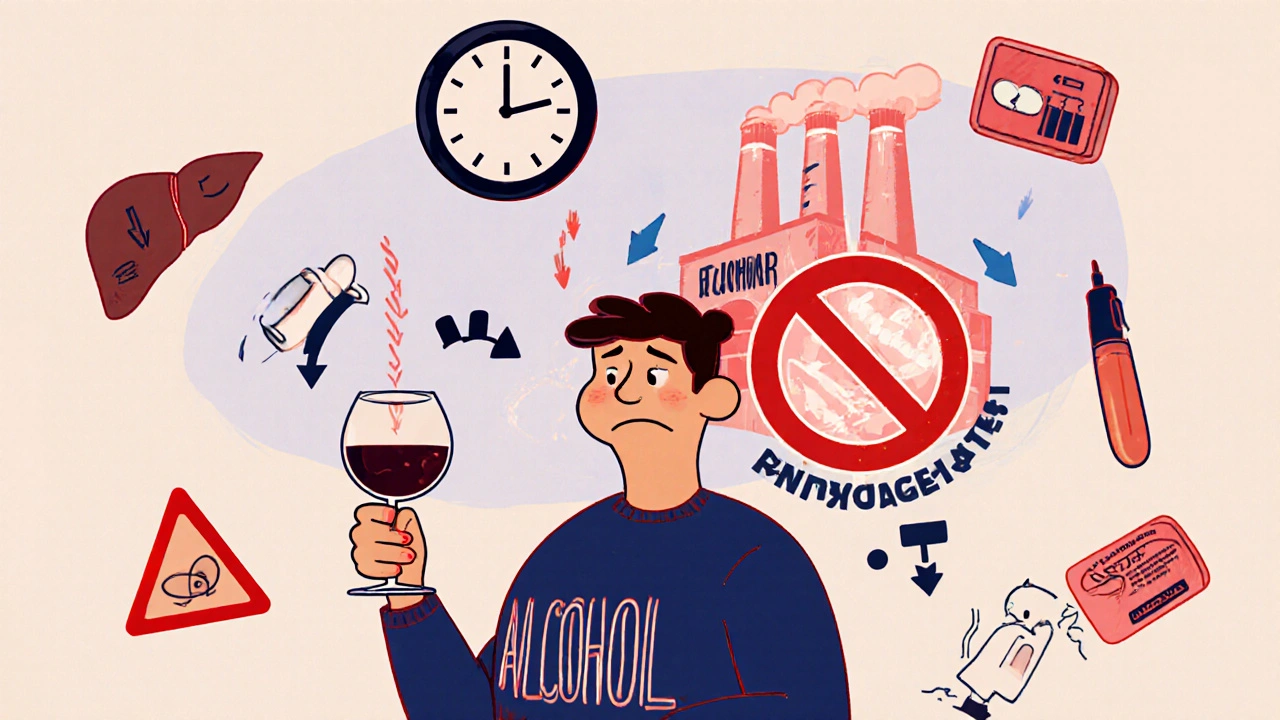Alcohol and Diabetes: How Drinking Affects Blood Sugar and Health
When you have alcohol and diabetes, the interaction between ethanol and your body’s glucose regulation system can be unpredictable and dangerous. Also known as drinking with diabetes, this combination requires careful planning—not because alcohol is banned, but because it plays tricks on your blood sugar. Alcohol doesn’t just add empty calories; it interferes with your liver’s ability to release glucose, which can lead to dangerously low blood sugar, especially if you’re on insulin or certain pills like sulfonylureas.
People with type 2 diabetes, a condition where the body resists insulin or doesn’t make enough of it often hear conflicting advice about alcohol. Some say it’s fine in moderation, others say avoid it entirely. The truth? It depends on your meds, your weight, your liver health, and how much you drink. For example, a glass of dry wine might not raise your sugar much, but a sugary cocktail or beer can spike it fast—then crash it hours later while you sleep. That’s why many doctors recommend checking your blood sugar before, during, and after drinking. And never drink on an empty stomach. Your liver needs fuel to balance out the alcohol’s effect.
There’s also a deeper link between insulin resistance, a core problem in type 2 diabetes where cells stop responding to insulin properly and long-term alcohol use. Heavy drinking over time can make your body less sensitive to insulin, worsening your condition. It’s not just about the sugar in your drink—it’s about how alcohol changes how your body processes energy. Studies show that people who drink heavily are more likely to develop metabolic syndrome, which includes high blood pressure, belly fat, and high triglycerides—all of which make diabetes harder to control.
Some of the posts below dig into how medications like Actos and Onglyza interact with alcohol, while others warn about hidden risks like low blood sugar during sleep or how alcohol can mask symptoms of hypoglycemia. You’ll find real advice on choosing safer drinks, timing your intake, and what to do if you feel dizzy or shaky after a drink. This isn’t about fear—it’s about control. You don’t have to quit alcohol to manage diabetes well, but you do need to know how it works with your body.
Alcohol and Diabetes Medications: Understanding Hypoglycemia Risks
Alcohol can cause dangerous, delayed drops in blood sugar when combined with diabetes medications like insulin or sulfonylureas. Learn how to reduce risks, which drinks are safest, and why even sugar-free cocktails aren't safe.
Keep Reading
